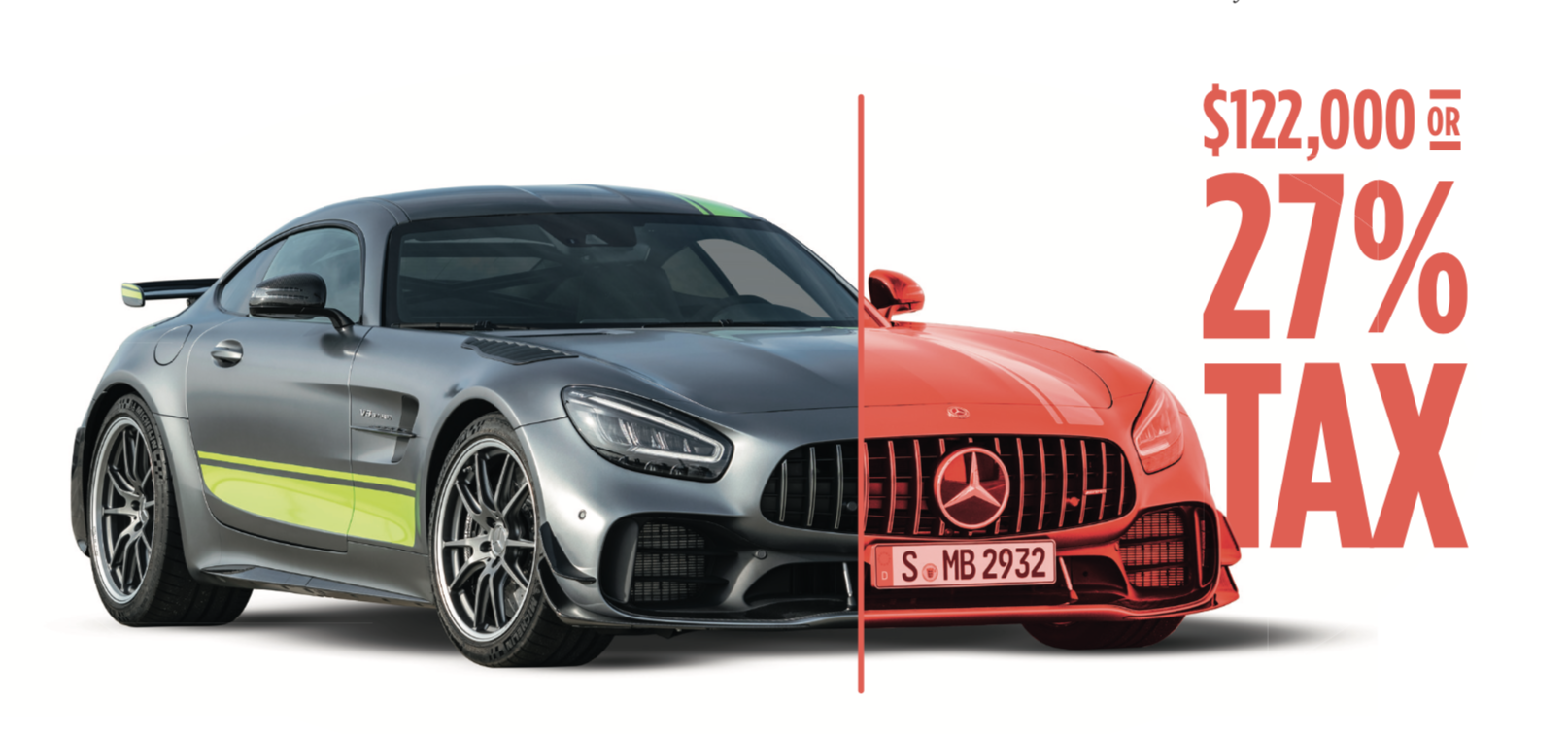Mercedes-Benz has thrown its weight behind calls to overhaul Australia’s vehicle tax system, branding it an unfair levy that stifles innovation and developments in car safety.
Mercedes-Benz Australia-Pacific CEO and MD, Horst von Sanden is calling for an overhaul of the taxes on cars. The $453,200 GT R Pro (above) will arrive in Australia in September. That figure includes $33,110 in GST and $89,002 in LCT. On top of the ‘final’ figure, buyers in Victoria are subject to a further $40,000 in stamp duty.
As Australia faces a battle to protect itself from the economic fallout from COVID-19, many economists are rallying behind abolishing stamp duty on land transfers. The argument is that the state-regulated tax is widely considered to be inefficient long-term, as it targets those entering into new transactions and can discourage new spend, adding tremors and trepidation to already precarious markets.
Despite this, Australia’s motor vehicle stamp duty has seemingly not been part of the main discussion. In fact, in Victoria, as of July 1, it was raised. This has prompted pleas from industry bodies, such as the Australian Automotive Dealer Association (AADA) to abolish or standardise the tax across states. And spearheading the push for reform on the manufacturer side is Mercedes-Benz, which dominates Luxury Car Tax revenue in Australia.
“The existing system represents a tax, upon a tax, upon a tax,” said Mercedes-Benz Australia- Pacific CEO and Managing Director, Horst von Sanden. On top of 10 per cent GST, currently, a new vehicle from the EU or UK will also attract a 5 per cent import tariff. If above the (newly raised) thresholds of $68,740 or $77,565 for fuel-efficient cars (sub-7L/100km combined), a 33 per cent Luxury Car Tax is also incurred. And depending on state/territory, the vehicle’s classification, use, cost and powertrain, a motor vehicle stamp duty between approximately 2 per cent and 11 per cent will then apply.
Mercedes-Benz Australia points out these costs could discourage consumers from investing in technology that benefits everybody. “In many cases, it imposes significant extra taxes on cars fitted with the highest levels of safety, innovation, technology and fuel efficiency measures,” said von Sanden. The Mercedes-Benz boss highlighted that many “luxury”-taxed vehicles aren’t always considered a luxury, but are simply best suited for the customer’s lifestyle. “We are open to discussing a fair, viable charge that doesn’t penalise motorists who select the vehicle they need with improved safety and technology…”
Although June saw an uptick in premium car sales, bolstered by the Federal Government’s $150,000 instant asset write-off scheme, the industry is still wading through muddy waters. von Sanden is calling for lawmakers to act. “If ever there was a time for governments to make new cars with the latest safety, technology and fuel efficiency measures more affordable for Australian consumers, it is now.”
<strong>Noelle Faulkner</strong>




